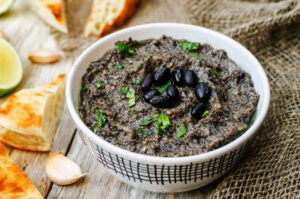If you’ve been looking to lose weight, you’ve probably encountered calorie deficit calculators. These tools promise to help you determine exactly how many calories you need to cut from your diet to shed those extra pounds. But are they really the best approach to sustainable weight loss and overall health? Let’s explore a fresh perspective on achieving your wellness goals.
The Appeal of Calorie Deficit Calculators
Calorie deficit calculators seem straightforward and scientific. You input your current weight, height, age, activity level, and weight loss goals. The calculator then spits out a magic number – the exact calorie count you should aim for each day to lose weight.
This approach is rooted in the basic principle of energy balance: if you consume fewer calories than you burn, you’ll lose weight. It’s a simple equation that feels empowering. Just hit your calorie target, and the pounds will melt away, right?
The Limitations of Focusing Solely on Calories
While calorie deficit calculators can provide a starting point, they often oversimplify the complex process of weight loss and overall health. They don’t account for nutrient quality, individual metabolic variations, or the psychological aspects of eating and weight loss. Moreover, strict calorie counting can be stressful and unsustainable, potentially leading to an unhealthy obsession with numbers.
The Role of the Habenula in Weight Loss Efforts
To understand why calorie deficit calculators might not be the best approach, it’s helpful to consider the role of a tiny but powerful part of our brain called the habenula.
The habenula is sometimes called the brain’s “motivation kill switch.” When we experience something negative or don’t receive an expected reward, the habenula activates. This activation can inhibit dopamine release, reducing our motivation to continue a behavior.
In the context of weight loss, this means that if we set rigid calorie goals and inevitably fall short, our habenula might kick in. We feel discouraged, demotivated, and less likely to continue our healthy habits. This can lead to a cycle of “yo-yo dieting” and feelings of failure.
Introducing the Iterative Mindset Method™
Instead of relying solely on calorie calculators, consider adopting a more flexible and sustainable approach to weight loss and overall health. The Iterative Mindset Method™ (IMM) offers a refreshing alternative that works with your brain, not against it.
The IMM is based on the science of habit formation and lasting behavior change. It empowers you to iterate your way to better health through a positive and simple approach. Here’s how it works:
- Assessment: Regularly tune in to what you really want to achieve in terms of your health and well-being.
- Iteration: Make small tweaks or adjustments to your behavior or environment based on your assessment.
- Practice: Try out these new habits, giving yourself time to adapt and adjust.
The beauty of this method is that there’s no “failure” – only practice and iteration. This approach helps bypass the habenula’s demotivating effects, keeping you engaged and motivated on your health journey.
Practical Steps for Sustainable Weight Loss
While calorie awareness can be a useful tool, it shouldn’t be the sole focus of your weight loss efforts. Here are some practical steps you can take, inspired by the Iterative Mindset Method:
Start With Small, Achievable Changes
Instead of drastically cutting calories, try making one small change at a time. For example, you might start by adding an extra serving of vegetables to your dinner each night.
Listen to your Body
Pay attention to hunger and fullness cues. Eat when you’re hungry and stop when you’re satisfied, rather than strictly adhering to a calorie limit.
Focus on Nutrient-Dense Foods
Instead of just counting calories, prioritize whole, nutrient-rich foods that will nourish your body and help you feel satisfied.
Build Healthy Habits Around Eating
Develop routines that support mindful eating, such as sitting down for meals without distractions or taking time to savor your food.
Stay Hydrated
Sometimes thirst can be mistaken for hunger. Ensure you’re drinking enough water throughout the day.
Incorporate Regular Movement
Find physical activities you enjoy and make them a regular part of your routine. This doesn’t have to mean intense workouts – even gentle movement like walking or stretching can be beneficial.
Manage Stress
Chronic stress can impact weight loss efforts. Explore stress-management techniques like meditation, deep breathing, or engaging in hobbies you enjoy.
Prioritize Sleep
Adequate sleep is crucial for maintaining a healthy weight. Aim for 7-9 hours of quality sleep each night.
Be Patient and Kind to Yourself
Remember, sustainable weight loss takes time. Be patient with yourself and celebrate small victories along the way.
Iterate and Adjust
If something isn’t working for you, don’t be afraid to make changes. The key is to keep trying and tweaking until you find what works best for you.
The Power of Community and Support
One often overlooked aspect of successful weight loss is the power of community and support. The Fresh Tri app, which incorporates the Iterative Mindset Method, offers a supportive community where you can share your journey, get encouragement, and learn from others who are on similar paths.
Belonging to a supportive community can help you stay motivated, provide accountability, and offer new ideas for healthy habits to try. It’s a stark contrast to the isolating experience of rigidly following a calorie deficit calculator.
A Fresh Approach to Weight Loss
While calorie deficit calculators can provide a starting point, they often fall short of promoting sustainable, long-term health and weight management. By adopting an iterative mindset and focusing on building healthy habits, you can create lasting change without the stress and potential setbacks associated with strict calorie counting.
Remember, your health journey is unique to you. What works for one person may not work for another. The key is to stay curious, be willing to try new approaches and keep iterating until you find what feels right and sustainable for your lifestyle.
Ready to try a fresh approach to your health journey? Try the Fresh Tri app today and start your iterative path to lasting change!













